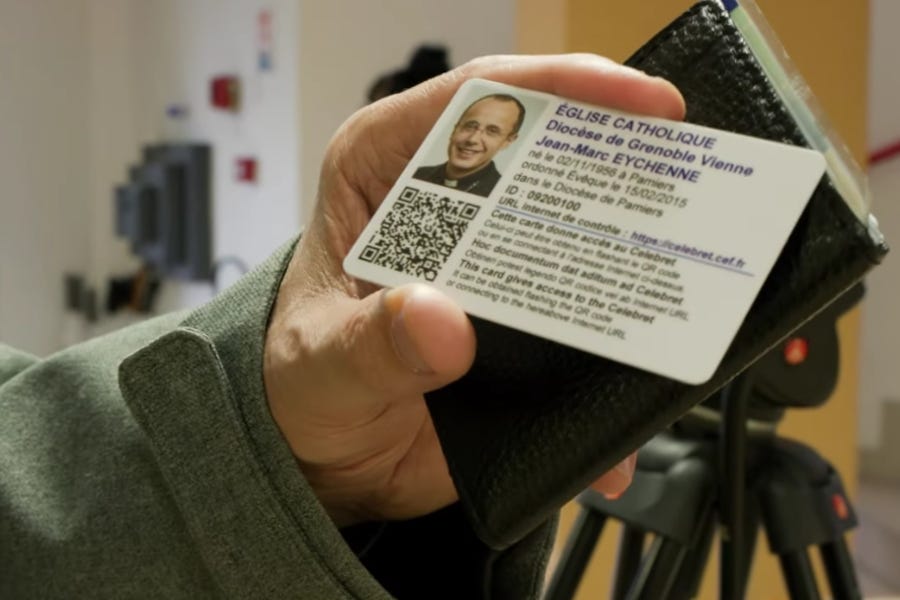Critics see red over French clergy ID card
A scannable QR code can convey whether a priest or deacon’s ministry is restricted.
The French bishops’ conference is facing backlash after it unveiled a new identity card for clerics, with a scannable QR code that can convey whether a priest or deacon’s ministry is restricted.

The card uses a traffi…
